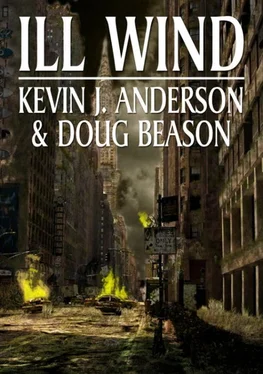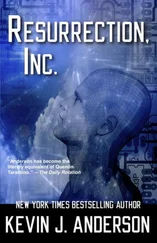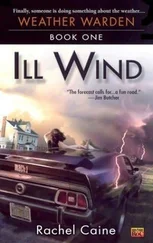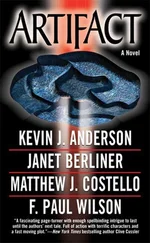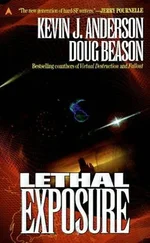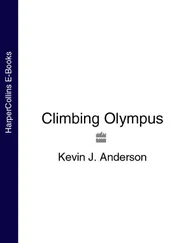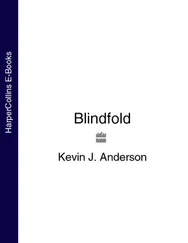Beside him, the woman looked tired, but well-proportioned. She stood like an amazon. She had auburn hair and a strikingly pretty, strong face—nothing dainty about it. She probably hadn’t been much to look at competing in a world of fashion models and heavily applied makeup; but now she was quite memorable.
Casey reined in the horses, and the wagon came to a stop. In the back, Henrietta Soo sat up blinking; she crinkled the reflective blanket away from her.
“Hey, can you give us a lift?” the big blond man said.
The woman smiled at Casey, then flashed a broader grin at Todd, as if she had just seen saviors coming to rescue her. “We’d really appreciate it,” she said. “I’m Heather Dixon.”
She stretched out her hand, and Todd didn’t know if she meant for him to shake it or just give her a hand up into the wagon. She turned to her companion. “And this is—”
He cut her off with an almost savage grin. “Clyde,” he said, “you can just call me Clyde.”
* * *
By now, Miles Uma had grown accustomed to the assumed name “Casey Jones.” After months by himself, hiding from anyone who might recognize him, Uma had successfully walled himself off from his former existence as the captain of an oil supertanker. He had never told his real name to Rex O’Keefe and the Gambotti brothers, now lost somewhere in LA, alive or dead. He had never told Todd.
The parched scenery around him with its palette of tan, mauve, and rust seemed a million miles from the ocean and the knotted gray clouds he had seen every day on the bridge of the Zoroaster . Uma drove the team of horses, trying not to recall the times he had captained the enormous steel ship.
He had spent his life on the sea: working on tugs up in Alaska, spending six months on a barge, then working his way up to the supertankers owned by Oilstar. He had served in the merchant marines, spent a few years in the Navy when he was younger, and learned everything he needed to know about ocean-going vessels. The sea was his family, his lover. Ever-changing, the sea was always there.
But now the air around him smelled of sage and yucca. He couldn’t recall how the ocean smelled—though he could never forget the stench of spilled crude oil.
Uma extinguished most of those stray thoughts from his mind. He found it easier to forget by latching unto a task, pouring his entire being into accomplishing it. Whether it was fixing up the locomotive Steam Roller , gathering food to bring to the starving masses in Los Angeles, or carrying satellites off to New Mexico.
He still had nightmares about seeing the towering Golden Gate Bridge in the darkness, breaking through the control room door locked by Connor Brooks. He still felt the millions of barrels of oil gushing out from his fragile tanker, saw the TV footage of the spill crawling across the San Francisco Bay.
Uma remembered the brutal finality of the swift board of inquiry that had stripped him of his captain’s rank. Oilstar had fired him, of course, and Uma couldn’t argue with their decision. He was the captain of the Zoroaster, he was responsible for the actions of his crew. Anything else was just an excuse… and Miles Uma did not believe in excuses.
It didn’t matter that Connor Brooks had actually caused the crash of the oil tanker. It didn’t matter that one of Oilstar’s microbiologists had actually spread the Prometheus organism that devoured gasoline and petroleum plastics. It didn’t matter that everyone else had found some way to pass the buck.
Uma vowed to spend the rest of his days atoning, to make amends in any way possible, one task after another, from now until the end of his life.
When he and Todd Severyn and Henrietta Soo had left the Jet Propulsion Laboratory, they worked the handcar to propel them along the tracks away from the city, through the San Gabriel Mountains, and into the great southern basin that was one of the least-populated areas in the entire United States. He took twice as many shifts as Todd or Henrietta, refusing to rest, enjoying the pain in his arms because that seared away distractions. Rolling along the rails, they got up an even greater speed than he had estimated, moving along near 25 miles per hour on the long straight stretches across the desert.
The distance from Barstow to Needles was murder, some of the bleakest, hottest wasteland he had ever imagined. Even though they worked through the night, it took them three days to cross the distance and to ascend the near-impossible slopes of the mountain range that stood like battlements across their path. But they made up for the time descending the east side of the slopes, across the California border, into the more hospitable terrain beyond the Colorado River.
In eastern Arizona they passed an abandoned ranch with horses running loose in a large pen out back; wagons rested in a supply yard by the barn. The ranch house stood silent, and as they rolled the handcar into the dawn light, ready to stop for the day, Todd kept staring at the horses. Uma knew what was on his mind.
With a wagon and team of horses, they could make better time without killing themselves from the effort. By now, Uma himself felt ready to drop from aching muscles, and Todd and Henrietta were worse off. Their pace had decreased over the last two days.
They stopped and went to the ranchhouse, hoping to replenish their supplies and at least have a good rest inside a real house on real mattresses, possibly even wash. Todd called out as they walked around the ranch yard. He saw no one moving, only the horses in the back meadows. Uma went to the ranch house, finding it unlocked. No one answered their shouts, and all three entered the darkened home.
The air smelled heavy and musty, as if no one had moved there for months. Everything was reasonably neat, unmolested by scavengers. Underlying it all hung a sour, rancid stench that was oppressive in the thick heat of the house.
They went into the kitchen, where morning light spilled through a broad window onto ceramic tiles and countertops. Uma opened the sealed refrigerator, and a strong gust of rotten meat drifted out. He did find some cans of soda and beer, which they took with them.
“Look at this,” Henrietta said. She reached to one of the door shelves and pulled out a cardboard box that contained five glass bottles. Prescription labels marked it as insulin. In another package, glistening needles lay surrounded by globs of translucent mucus—the remains of plastic hypodermic syringes.
In the big reading room and study, they found the corpse.
The man had been there for probably two months. The dry desert heat had preserved him somewhat, but not enough. He lay blackened and swollen in a big, overstuffed leather chair. His eyes were closed. His hair and fingernails had continued to grow.
Todd stumbled and sat down heavily in a chair, hanging his head in his hands. “Just like I found Alex,” he said. Uma didn’t know what he was talking about.
The study had tall French windows, covered with sheer curtains. Books lined the oak shelves along two walls, and a large fireplace sat black and cold, mounded with white ashes…
That afternoon, they buried the man out back.
They spent the rest of the evening gathering supplies. The isolated ranch apparently held many months of stores. All the meat in the freezer had turned rotten, but a large cache of canned goods, as well as dried and smoked meats, remained.
Todd seemed to enjoy rounding up three of the horses and hitching the wagon. Together, they strained to load the ten solar satellites into the bed of the wagon. Uma, Todd, and Henrietta washed with tepid water from the emergency tank by the barn; Uma took the time to shave his entire head with the straight razor. They stayed the night, getting a good rest on comfortable beds, then set out the following morning.
Читать дальше
